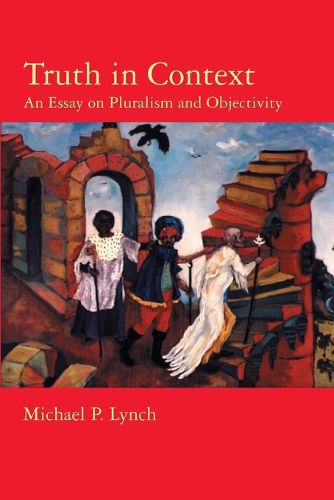Readings Newsletter
Become a Readings Member to make your shopping experience even easier.
Sign in or sign up for free!
You’re not far away from qualifying for FREE standard shipping within Australia
You’ve qualified for FREE standard shipping within Australia
The cart is loading…






Academic debates about pluralism and truth have become increasingly polarized in recent years. One side embraces extreme relativism, deeming any talk of objective truth as philosophically naive. The opposition frequently arguing that any sort of relativism leads to nihilism, insists on an objective notion of truth according to which there in only one true story of the world. Both sides agree there is no middle path. Michael Lynch argues that there is a middle path, one where metaphysical pluralism is consistent with a robust realism about the truth. Drawing on the work of Hilary Putnam, W.V.O. Quine and Ludwig Wittgenstein, among others, Lynch develops a version of metaphysical pluralism, which he calls relativistic Kantianism . He argues that one can take facts and propositions as relative without implying that our ordinary concept of truth is a relative, epistemic, or soft concept. The truths may be relative, but our concept of truth need not be.
$9.00 standard shipping within Australia
FREE standard shipping within Australia for orders over $100.00
Express & International shipping calculated at checkout
Academic debates about pluralism and truth have become increasingly polarized in recent years. One side embraces extreme relativism, deeming any talk of objective truth as philosophically naive. The opposition frequently arguing that any sort of relativism leads to nihilism, insists on an objective notion of truth according to which there in only one true story of the world. Both sides agree there is no middle path. Michael Lynch argues that there is a middle path, one where metaphysical pluralism is consistent with a robust realism about the truth. Drawing on the work of Hilary Putnam, W.V.O. Quine and Ludwig Wittgenstein, among others, Lynch develops a version of metaphysical pluralism, which he calls relativistic Kantianism . He argues that one can take facts and propositions as relative without implying that our ordinary concept of truth is a relative, epistemic, or soft concept. The truths may be relative, but our concept of truth need not be.